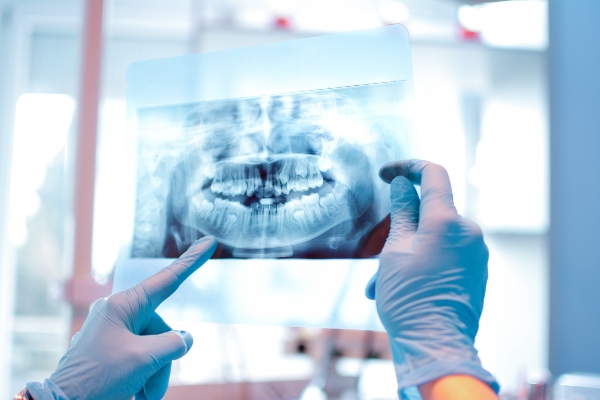 Patients are always curious about the newest advances in dentistry. One of these recent advancements is digital X-rays, which many dentists now use. Patients may have some questions about this new technology so we will answer them here!
Patients are always curious about the newest advances in dentistry. One of these recent advancements is digital X-rays, which many dentists now use. Patients may have some questions about this new technology so we will answer them here!
What are digital X-rays?
Digital X-rays are dental imaging that helps diagnose problems with teeth, jaws, and other mouthparts. The images show the hidden structures inside your mouth in detail. With these detailed images, dentists can see cavities or other problems without invasive procedures like taking an oral exam under anesthesia.
The best part about this new technology is that it's fast! Rather than waiting for days for film processing to happen, you get instant results on a computer screen while still in the office. What's more, digital X-ray machines use less radiation than traditional films, so they're safer too.
How much radiation do digital X-rays use?
Digital X-ray machines emit deficient levels of radiation and are safe to use. The typical patient will be exposed to less than 50% of what they receive from a single chest X-ray! You can rest assured that your dentist will not be taking X-rays when they are not necessary for treatment! It's also important to remember that we only take dental radiographs as needed.
So, what's the bottom line? Digital radiographs have many benefits over traditional films, including reduced radiation exposure and faster images. While there is no current evidence that digital radiographs cause any harm to patients or dental professionals, it is always good to know what you are getting into. If the dentist is unsure whether they should take a dental radiograph, it's usually best to go with the digital x-ray option if possible.
What are the benefits of digital X-rays?
Digital X-rays make it easier to diagnose problems quickly. Since they're faster than traditional films, you spend less time in both the waiting room and treatment chair!
Digital images can be shared instantly with other dental professionals if needed so that doctors can coordinate your care, leading to a more efficient, effective team approach. Best of all, digital X-rays use less radiation than older film technology, so you're exposed to fewer carcinogens and other harmful chemicals that can raise your risk for cancer down the line.
What is a lead bib?
A lead bib is a small sheet that covers the patient's chest and stomach. Sometimes, patients are required to wear this during x-rays to help protect their soft tissues from excess radiation exposure. We insist on lead bibs for all our patients because it increases safety in the office by keeping harmful rays away from sensitive areas like your heart and lungs.
What is the difference between a panoramic X-ray vs. traditional X-rays?
Traditional dental films are two-dimensional, meaning they give a flat view of your mouth on film. The images can be hard to interpret if you have trouble seeing subtle changes in tooth structure or jaw alignment that might indicate problems.
Panoramic X-rays are three-dimensional, so they show more of the mouth in one image. This makes it easier for dentists to spot issues that might be hidden in traditional films, leading to earlier detection and treatment.
Can I get dental implants with this new technology?
Yes! Patients can benefit from having their teeth replaced or augmented through a process called implant dentistry. Dental implants are an excellent way to restore your smile since they can replace missing teeth completely with beautiful new permanent crowns. Dental implants are also ideal for patients who need a bridge or partial denture replacement because the metal post in their jaw acts as an anchor onto which artificial teeth can be attached.
Request an appointment or call Island Paradise Dental at 239-465-4999 for an appointment in our Marco Island office.
Related Posts
Oral sedation is one of many options available to a dentist. Oral sedation has opened a whole new world of possibilities for dentistry and dental procedures. However, many people have questions about how exactly oral sedation works because of how new it is.Sedation dentistry is a perfectly safe form of dentistry. Oral sedation is ideal…
Good oral hygiene is a must for everyone, and your dentist will certainly tell you that. Preventing a tooth infection can be as simple as using the right toothbrush, flossing regularly, and avoiding certain beverages like coffee or wine. Read on for more tips!Brushing your teeth is essential for preventing a tooth infection, but it's…
One of the most important roles of dentistry is to prevent and treat tooth decay. According to The American Dental Association, it affects 91% of Americans by the time they reach the age of 20. Fortunately, dentists are trained and equipped to remove tooth decay and restore a patient's good oral health.In order for decay…












